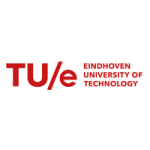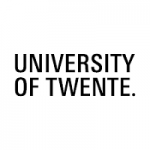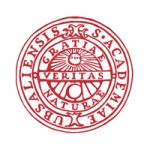项目介绍
About the job
We have a vacancy for an enthusiastic and modelling-inclined PhD candidate to work in application of machine learning methods within the field of crystal and/or continuum plasticity. The position belongs to the Physical Metallurgy group (https://www.ntnu.edu/ima/research/physical-metallurgy#/view/about), in the Department of Materials Science and Engineering, Norwegian University for Science and Technology (NTNU).
This academic position will provide the opportunity for the candidate to complete a doctoral education program and obtain a PhD from NTNU, while undertaking professional development activities within the broad fields of research and materials science.
Crystal plasticity plays a critical role for understanding and predicting both the global and local behavior of materials under various loading conditions, especially in metals and alloys. Phenomena such as a corner effect, non-normality of the plastic flow, flow localization, are particularly suited for being studied within the crystal plasticity framework. In a hierarchical multiscale modelling paradigm, the crystal plasticity, as a computational method, stretches itself broadly along the microscale, neighbouring from the bottom with the dislocation and molecular dynamics, and is very closely linked to the upper scale of the continuum plasticity. Here, plastic anisotropy evolution associated with the texture evolution are essential for improving forming simulations. Given the recent improvements, both in computational power and in the effectiveness of the numerical methods, it increasingly becomes viable to simulate the large plastic deformations of small and medium sized components, made of single or multi-materials, directly by using the crystal plasticity methods.
Machine learning techniques, especially recurrent neural networks, are among the current research activities, used for representing the constitutive equations and calibration of advanced anisotropic continuum plasticity models based on data generated by the crystal plasticity. This project aims at making an advancement within the field of crystal and continuum plasticity strongly supported by the relevant machine learning methods.
You will report to Associate Professor Tomáš Mánik. The PhD position is funded by the Department of Materials Science and Engineering.
Duties of the position
- Conduct original research on the application of machine learning to model crystal and continuum plasticity in metallic materials.
- Develop and implement computational models that incorporate machine learning algorithms to predict material behavior during forming and forging processes.
- Collaborate with other researchers and industry partners to validate models and apply findings to real-world industrial problems.
- Prepare research findings for publication in peer-reviewed journals and present results at international conferences.
- Participate in academic and industry-related workshops, seminars, and meetings as required.
- Contribute to supervision of undergraduate and master’s students within the department
Required selection criteria
- A Master’s degree in materials science, mechanical engineering, applied physics, or mathematics
- Experience with machine learning techniques and their application in scientific research.
- Proficiency in programming languages such as Python, FORTRAN, or similar, and an experience with computational modeling tools.
- Your education must correspond to a five-year Norwegian degree programme, where 120 credits are obtained at master’s level.
- You must have a strong academic background from your previous studies and an average grade from the master’s degree program, or equivalent education, which is equal to B or better compared with NTNU’s grading scale. If you do not have letter grades from previous studies, you must have an equally good academic basis. If you have a weaker grade background, you may be assessed if you can document that you are particularly suitable for a PhD education.
- You must meet the requirements for admission to the faculty’s doctoral program (https://www.ntnu.edu/nv/phd)
- You must have good written and oral English language and communication skills.
The appointment is to be made in accordance with Regulations on terms of employment for positions such as postdoctoral fellow, Phd candidate, research assistant and specialist candidate and Regulations concerning the degrees of Philosophiae Doctor (PhD) and Philosodophiae Doctor (PhD) in artistic research national guidelines for appointment as PhD, post doctor and research assistant
Preferred selection criteria
- Strong background in materials science, mechanical engineering, applied physics, machine learning or mathematics
- A strong academic record, with excellent analytical and problem-solving skills.
- Experience with an FE software and user-defined material subroutines
- Knowledge of a Scandinavian language is considered plus.
Personal characteristics
- Be comfortable working independently to solve complex problems and take responsibility for your own progress.
- Be willing to learn from experiences and feedback from others.
- Be able to build meaningful professional relationships in the workplace and foster respect among colleagues.
- Be able to work together with other PhD candidates, postdocs, research staff and faculty, and contribute to the wider research groups at NTNU.
- Be required to respect others in the workplace and contribute to an inclusive, fair and responsible work environment.
Emphasis will be placed on personal and interpersonal qualities.
We offer
- exciting and stimulating tasks in a strong international academic environment
- an open and inclusive work environment with dedicated colleagues
- favourable terms in the Norwegian Public Service Pension Fund
- employee benefits
Salary and conditions
As a PhD candidate (code 1017) you are normally paid from gross NOK 532 200 per annum before tax, depending on qualifications and seniority. From the salary, 2% is deducted as a contribution to the Norwegian Public Service Pension Fund.
The period of employment is 3 years.
Preferred start-up: August 2025
Appointment to a PhD position requires that you are admitted to the PhD programme in Materials Science and Engineering (https://www.ntnu.edu/studies/phmt) within three months of employment, and that you participate in an organized PhD programme during the employment period.
——————————–
The engagement is to be made in accordance with the regulations in force concerning State Employees and Civil Servants, and the acts relating to Control of the Export of Strategic Goods, Services and Technology. Candidates who by assessment of the application and attachment are seen to conflict with the criteria in the latter law will be prohibited from recruitment to NTNU. After the appointment you must assume that there may be changes in the area of work.
It is a prerequisite you can be present at and accessible to the institution daily.
About the application
The application and supporting documentation to be used as the basis for the assessment must be in English.
Publications and other scientific work must be attached to the application. Please note that your application will be considered based solely on information submitted by the application deadline. You must therefore ensure that your application clearly demonstrates how your skills and experience fulfil the criteria specified above.
The application must include:
- A cover letter describing your motivation for the position, a summary of scientific experience and how the applicant sees their background as suitable (1-2 pages max).
- A draft research proposal (1 or 2 pages max) for the PhD study, presenting ideas for the PhD-work “Application of machine learning for crystal and/or continuum plasticity for forming and forging processes” and how it can be applied, based on the project description given in this advertisement. This proposal will be neither final nor binding for the project.
- CV, certificates and diplomas
- Transcripts and diplomas for bachelor’s and master’s degrees. If you have not completed the master’s degree, you must submit a confirmation that the master’s thesis has been submitted.
- Applicants from non-English-speaking countries outside Europe must document English skills by an approved test. Approved tests are TOEFL, IELTS and Cambridge Certificate in Advanced English (CAE) or Cambridge Certificate of Proficiency in English (CPE)
- A copy of the master’s thesis. If you recently have submitted your master’s thesis, you can attach a draft of the thesis. Documentation of a completed master’s degree must be presented before taking up the position.
- Name and contact information of three referees
- If you have publications or other relevant research work
If all, or parts, of your education has been taken abroad, we also ask you to attach documentation of the scope and quality of your entire education, both bachelor’s and master’s education, in addition to other higher education. Description of the documentation required can be found here. If you already have a statement from Norwegian Directorate for Higher Education and Skills, please attach this as well.
We will take joint work into account. If it is difficult to identify your efforts in the joint work, you must enclose a short description of your participation.
In the evaluation of which candidate is best qualified, emphasis will be placed on education, experience and personal and interpersonal qualities. Motivation, ambitions, and potential will also count in the assessment of the candidates.
NTNU is committed to following evaluation criteria for research quality according to The San Francisco Declaration on Research Assessment – DORA.
General information
NTNU believes that inclusion and diversity is our strength. We want to recruit people with different competencies, educational backgrounds, life experiences and perspectives to contribute to solving our social responsibilities within education and research. We will facilitate for our employees’ needs.
NTNU is working actively to increase the number of women employed in scientific positions and has a number of resources to promote equality.
—————–
The city of Trondheim is a modern European city with a rich cultural scene. Trondheim is the innovation capital of Norway with a population of 200,000. The Norwegian welfare state, including healthcare, schools, kindergartens and overall equality, is probably the best of its kind in the world. Professional subsidized day-care for children is easily available. Furthermore, Trondheim offers great opportunities for education (including international schools) and possibilities to enjoy nature, culture and family life and has low crime rates and clean air quality.
———————-
As an employee at NTNU, you must at all times adhere to the changes that the development in the subject entails and the organizational changes that are adopted.
A public list of applicants with name, age, job title and municipality of residence is prepared after the application deadline. If you want to reserve yourself from entry on the public applicant list, this must be justified. Assessment will be made in accordance with current legislation. You will be notified if the reservation is not accepted.
If you have any questions about the position, please contact Associate Professor Tomáš Mánik, email: tomas.manik@ntnu.no. If you have any questions about the recruitment process, please contact Marie Kristiansen, e-mail: marie.kristiansen@ntnu.no
If you think this looks interesting and in line with your qualifications, please submit your application electronically via jobbnorge.no with your CV, diplomas and certificates attached. Applications submitted elsewhere will not be considered. Upon request, you must be able to obtain certified copies of your documentation.
Application deadline: 31.12.2024
联系方式
电话: (+47) 73 59 50 00相关项目推荐
KD博士实时收录全球顶尖院校的博士项目,总有一个项目等着你!






